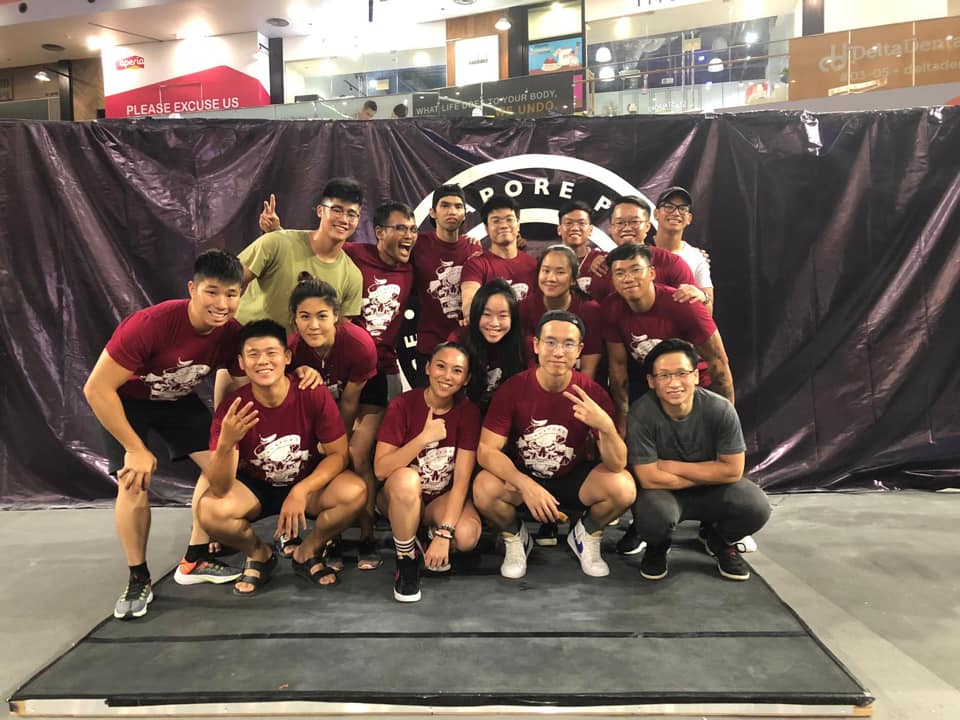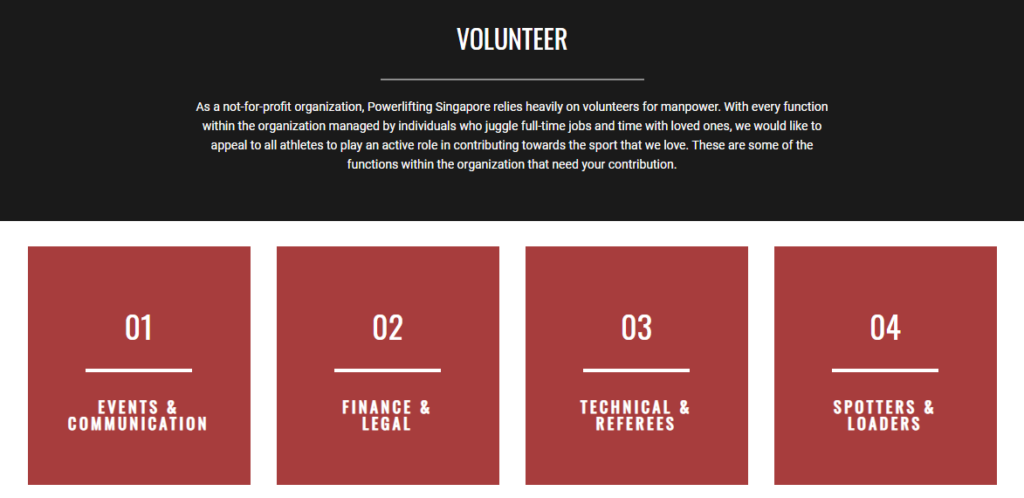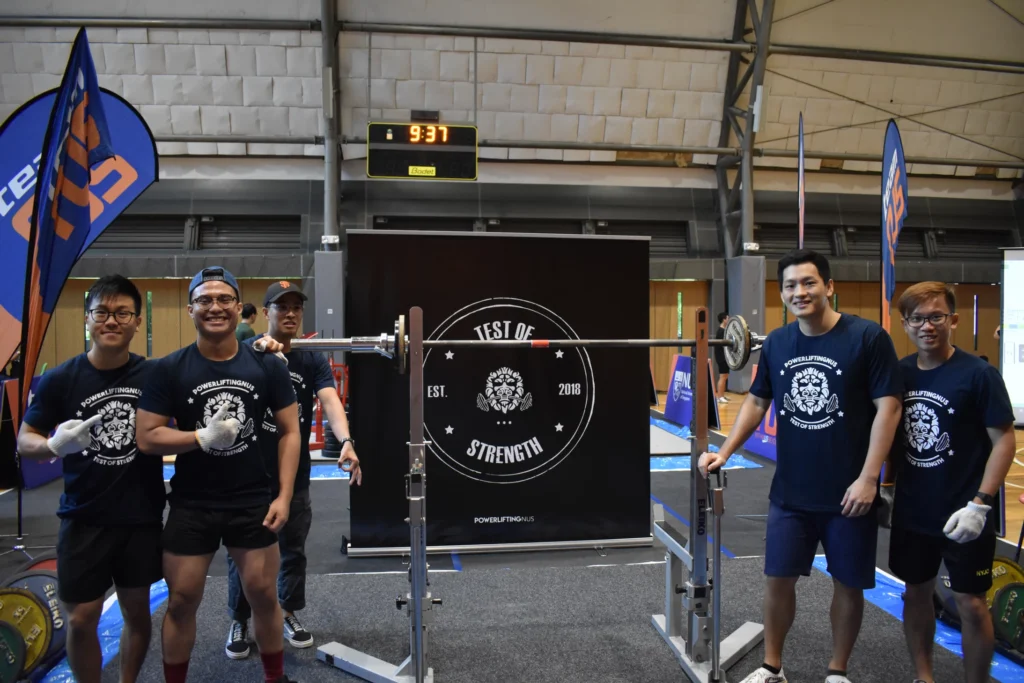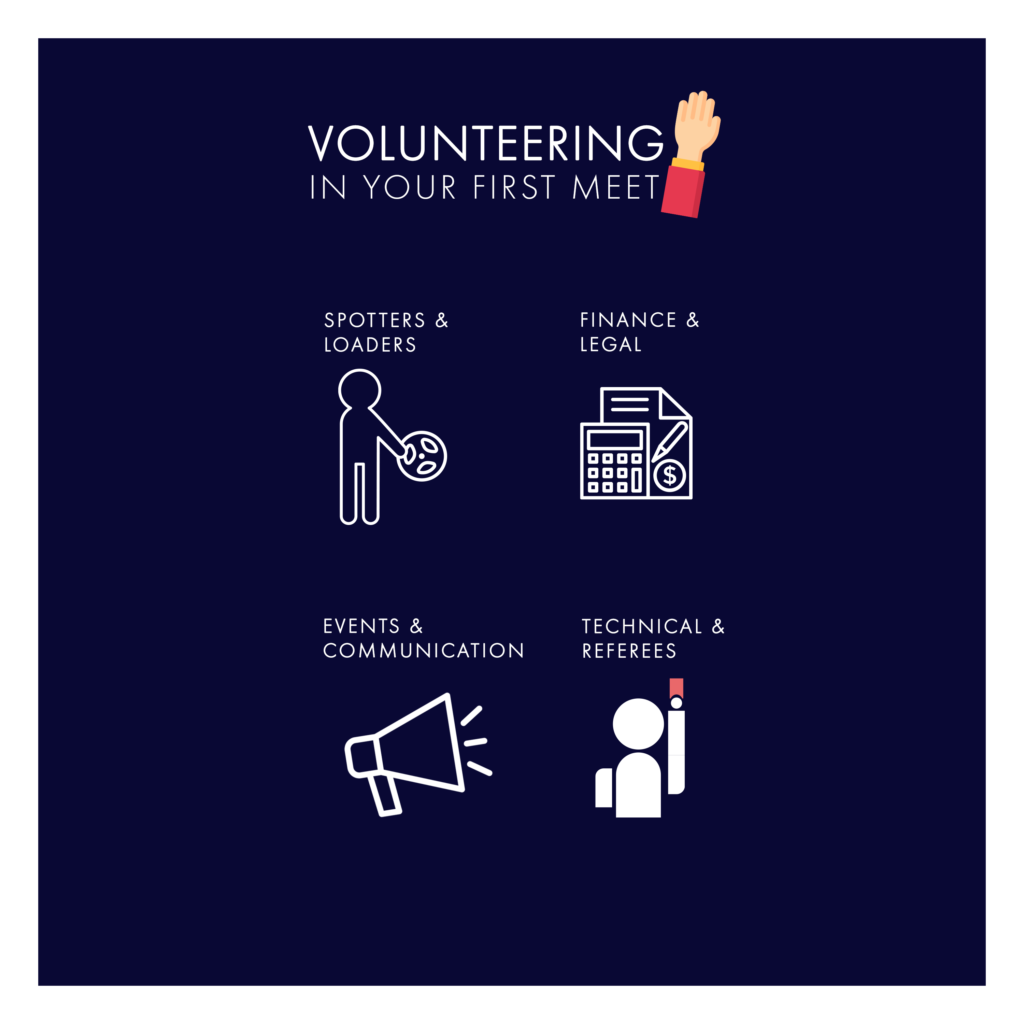Volunteering! Before every competition, there is a call for volunteers. You’re wondering if you should sign up, but you don’t have experience; you’re not sure where they will put you. What would you be doing? This article seeks to answer these questions and more.
Why Volunteer?
All meets in Singapore are run by the community; it is an entirely volunteer-driven initiative. Volunteers contribute immensely to keeping costs low, allowing the organisers to keep prices lower for competitors as well. Some competitions acknowledge and recognise voluntary efforts within the community by allocating priority slots to past volunteers, and volunteering is required for aspiring IPF regional and international competitors.
Myth: “I need to have competed in order to volunteer.”
On an individual level, volunteering helps you understand how a meet operates. It provides an avenue to organically absorb the atmosphere and experience of being at a meet beyond the spectator stands. Volunteering is also another way to get involved in the community beyond competing; it can be your first step to get your feet wet in the sport, if you have little competition experience. While it is fundamentally different from competing as a powerlifter, volunteering rewards you with the experience of seeing your friends and others do their best close-up. In fact, this will motivate you for when your time comes to step onto the platform.

What Are the Roles?
The volunteer roles can be different according to the organisers and federations based on their rules, administration, logistics and budget. If you wish to know more about the different meets available in Singapore, click here.

Administration & Logistics, Pre & Post Event
As with every event you’ve been to, there is always a need for admin & logistics. Administrative work is quite self-explanatory, and can usually encompasses the registration booth, collection & distribution of items such as T-shirts, medals and food. This transitions into logistics as well, which includes setting up the entire competition space, moving 800+ kilograms of weights and equipment, driving between various gyms and storage facilities in Singapore. A physically demanding job which requires strength and endurance, some organisers have taken to hiring manual labor to reduce the workloads on volunteers.
Volunteers at Test of Strength 2019. (Video Credits: Powerlifting NUS (@powerliftingnus))
Technical Officials
Officials are required at every meet to validate the efforts of the competitors. They maintain the standard of the lifts as well as oversee the competition experience. They’re the referees who award the lights; weigh you in; check your equipment; record your attempts (officials at the technical table) and in some competitions, deliver the news that your 1 minute is up. For IPF-affiliated meets, volunteers are required to be certified which entails attending a workshop and passing a short series of tests. While not necessary, it is encouraged that aspiring referees compete at least once prior to signing up so that you have a general idea of how a powerlifting meet typically flows. As technical officials, you play a huge part in making sure that the meet runs smoothly, and everyone follows the competition rules set out by the federation.

Specialised, Individual Expertise
These are roles that are dependent on the expertise of the volunteers. Emcees, designers, event photographers are some of these roles. As these roles are specialised and based on individual expertise, they may not be highlighted in the general recruitment call. In this case, it may be better for you to approach the organisers with your skillsets, which you can do so shortly after the recruitment call closes. To admire the intense faces we make, here’s a photo essay by Yasin hosted on our website.
Spotter & Loader
The bread and butter of volunteering in powerlifting – these folks make up the bulk of the volunteers and they work like a Formula One race-pit team to change the loads and keep competitors safe. There are usually 5-7 spotters & loaders depending on the weight class and availability, amongst which there is a chief spotter/loader who takes on the role of leading the others and center spotting, and side spotters. As it can be extremely fatiguing to spot & load, make sure that you get sufficient hydration and rest before your scheduled sessions. Do not sign up for multiple sessions!

What to Expect?
The organisers usually start recruiting for volunteers 3-5 weeks out from the event. This usually comprises of a survey form in which you will state your availability and pick your roles. After allocation, volunteers will be briefed on their duties and reporting time. As a token of appreciation, a meal/snacks, water/drinks and a volunteer T-shirt will be given out as a token of appreciation.
The Next Step
This article serves as a preliminary guide to volunteering in the local powerlifting scene. From here, you can use this experience to volunteer further with the federations, organise your own meets and compete at a higher level. Volunteering can often be overlooked, uncredited and diffficult. If you decide to volunteer, or you have in the past, thank you!
Now, get involved.
Further questions? Feel free to contact us at [email protected].

